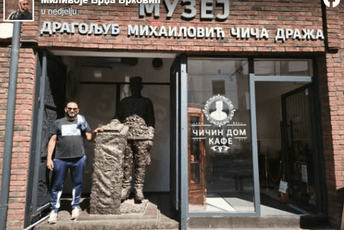Montenegro on the Brink: Illegal 13th July Award Sparks Citizen Uproar!
Montenegro is witnessing what many call a direct assault on its anti-fascist legacy. The country’s highest state honor, the 13th July Award, has been handed out in a way that ignited a storm of public outrage and citizen revolt. The controversy peaked when it was revealed that the award was given to Bećir Vuković, a figure whose connection to the book for which he was honored is unproven, and whose narrative, critics argue, glorifies the Chetnik movement — a move many find unacceptable and illegal.
Journalist Tanja Pavićević, who has closely followed the case, points out that this is just the tip of the iceberg in a broader socio-political context. According to her, structures linked to the Democratic Party and the Serbian Orthodox Church are manipulating the system to remove professionals and replace them with ideologically aligned individuals who support their narrative. This has turned the 13th July Award into a tool for promoting an ideology that denies Montenegro’s anti-fascist tradition.
The situation escalated when citizens spontaneously gathered in front of Vila Gorica to express their revolt against the way the award was given and the speech by Andrija Mandić, who essentially claimed that the 13th of July was raised by Chetniks, not partisans. The police responded repressively, using pepper spray even against elderly people and professors, further enraging the public.
The National Library “Đurđe Crnojević” has demanded institutional protection due to the misuse of its name in this case, while the Ministry of Culture refuses to take responsibility, highlighting deep divisions and political games within the state.
Pavićević warns that these attacks on the anti-fascist legacy are the harshest in the last five years, and Montenegro is undergoing economic and moral decline. Sacred heritage is being handed over to another state, and narratives are being rebranded to equate the partisan and Chetnik movements — a revision many find unacceptable.
This case is not just a local incident but reflects a broader struggle for Montenegro’s identity and future. Citizens have shown that the anti-fascist spirit still lives in the country and they will not allow their history and values to be trampled and distorted.
If you think this is just another political game, think again. This drama is far from over, and the real battle is just beginning. So, what do you think? Is Montenegro on the right path, or is this the beginning of the end of its pride? Drop a comment and let the people’s voice be heard!


















